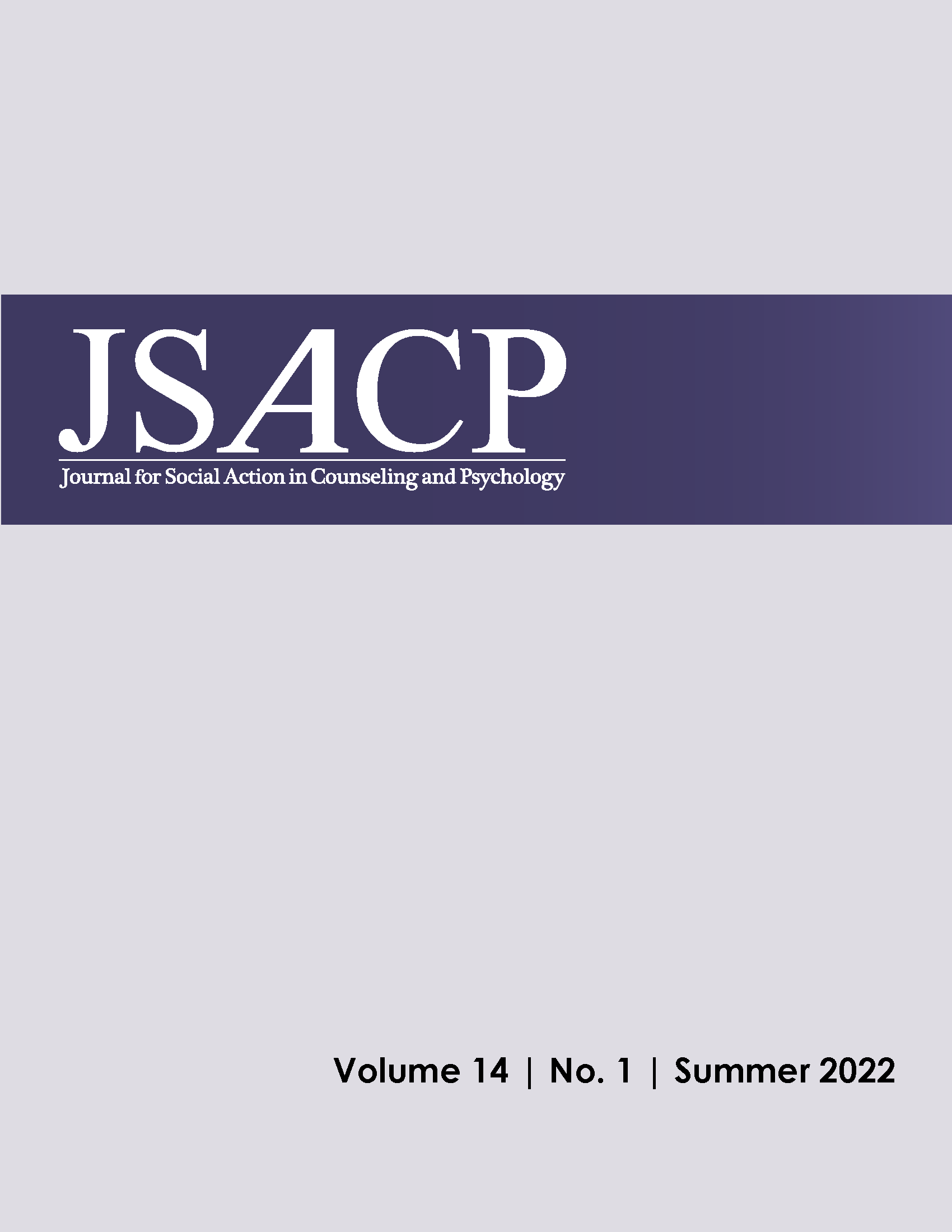Teaching Cultural Competence and Social Justice in a Mental Health Counseling Graduate Course: Reflection and Review of the Literature
DOI:
https://doi.org/10.33043/JSACP.14.1.94-105Keywords:
counselor education, social justice, teaching pedagogy, multiculturalismAbstract
Cultural competence and commitment to social justice are foundational to counselors’ professional identity. There is significant attention in scholarly literature and ethical codes on what this means for the education, training, and practice. This has led counseling and counselor education programs to actively incorporate issues of cultural diversity and social justice into coursework and fieldwork requirements. Research trends indicate graduate students in counseling and counselor education benefit personally and professionally from the knowledge, skills, and awareness they develop in and outside of the classroom. Coursework on multiculturalism and social justice is a standard part of these programs, but knowledge on best practices for students’ personal and professional growth is still accumulating to reflect dynamic social and political changes within the United States and abroad. This manuscript describes a required counseling course for mental health counseling students implemented in the spring of 2020. This course integrated topics related to cultural diversity and social justice and introduced conceptual frameworks for counseling and advocacy. The description of this course includes sample readings, in-class activities, and graded assignments that fulfill the learning objectives. Comparisons to research trends and existing recommendations are made, and future directions for course design are highlighted.
Downloads
Downloads
Published
How to Cite
Issue
Section
License
Copyright (c) 2022 Mary Beth Medvide

This work is licensed under a Creative Commons Attribution-NonCommercial-NoDerivatives 4.0 International License.
By submitting to JSACP, the author(s) agree to the terms of the Author Agreement. Beginning in 2018, all authors retain copyrights associated with their article contributions and agree to make such contributions available under a Creative Commons Attribution-NonCommercial-NoDerivatives 4.0 International license upon publication in JSACP. Copyrights to articles published prior to 2018 have been transferred from the authors to JSACP.









